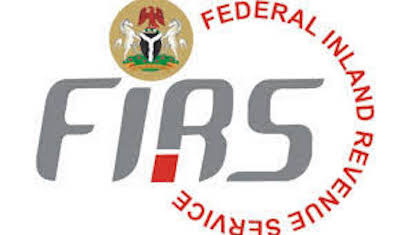Business News
VAT Not Administered at Sub-National Level Anywhere in the World – FIRS

By Tony Obiechina, Abu
The Federal Inland Revenue Service (FIRS) on Wednesday insisted that it has the sole responsibility to collect and administer Value Added Tax (VAT) in the country.
Addressing journalists in Abuja, the Group Lead, Special Operations Group, FIRS, Mathew Gbonjubola, said there is nowhere in the world where the administration of VAT is done at the sub-national level.
A Federal High Court sitting in Port Harcourt, Rivers State, had on Monday dismissed an application by the FIRS, seeking to stop the state government from commencing collection of VAT in the state.
Following the court ruling, Governor Nyesom Wike directed the Rivers State Revenue Service, to immediately commence collection of VAT, from corporate bodies and businesses in the state threatening to shut down any concern that fails to comply.
Speaking on the development, Gbonjubola said the that contrary to misconceptions in some quarters, the FIRS administers VAT on behalf of the three tiers of governnment and not for the Federal Government alone.
He said the decision of the Federal High Court to grant powers to states to administer Value Added Tax will make it difficult for businesses to operate under the new dispensation.
According to him, the revenue from VAT is administered under an arrangement that allows the Federal Government to collect 15 per cent, States 50 per cent and Local Government 35 per cent.
He said by implication the State and Local Government take about 85 per cent of VAT proceeds leaving the Federal government with only 15 percent.
“The VAT is not paid to the Federation Account but to VAT pool account for distribution to the three tiers of governnment. It is after the sharing that the portion of the Federal Government is paid to the Consolidated Revenue Fund Account.
“VAT works only at a national level but not at a sub-national level. There is no country in the world where VAT works at the sub-national level”, he said.
According to him, the VAT Act differentiates between two kinds of VAT; Input VAT and Output VAT, pointing out thatthe input VAT is the tax paid to suppliers on the purchase of taxable goods and services, while output VAT is the tax received from customers on the value of taxable goods and services sold or rendered.
Gbonjubola stated that the VAT Act allows taxpayers to offset their input VAT (Allowable Input VAT) against their output VAT, to the extent that such input VAT only relates to such goods that are purchased or imported for resale or form the taxpayers’ stock-in-trade used for the production of new products on which output VAT will be charged.
He explained that the output VAT exceeds the recoverable input VAT, while the taxpayer is expected to remit the excess to the FIRS.
In the instance where the input VAT exceeds the output VAT, he further explained that the taxpayer will be entitled to a refund of the excess after following the due process as contained in the FIRS Establishment Act.
But with the decision of some states to go ahead with the implementation of the Court Judgement, he said that such refund may not be possible because the administration of VAT will be done by different states tax authorities.
He attended the media chat with the Group Lead, Digital and Innovation Support Group, FIRS, Mrs Chiaka Ben-Obi.
He said, “The VAT is not paid to the Federation Account but to VAT pool account for distribution to the three tiers of governnment. It is after the sharing that the portion of the Federal Government is paid to the Consolidated Revenue Fund Account.
“VAT works only at a national level but not at a sub-national level. There is no country in the world where VAT works at the sub-national level.”
He said the VAT Act differentiates between two kinds of VAT; Input VAT and Output VAT.
Put simply, he said the input VAT is the tax paid to suppliers on the purchase of taxable goods and services, while output VAT is the tax received from customers on the value of taxable goods and services sold or rendered.
According to Gbonjubola, the VAT Act allows taxpayers to offset their input VAT (Allowable Input VAT) against their output VAT, to the extent that such input VAT only relates to such goods that are purchased or imported for resale or form the taxpayers’ stock-in-trade used for the production of new products on which output VAT will be charged.
He said where the output VAT exceeds the recoverable input VAT, the taxpayer is expected to remit the excess to the FIRS.
In the instance where the input VAT exceeds the output VAT, he explained that taxpayer will be entitled to a refund of the excess after following the due process as contained in the FIRS Establishment Act.
But with the decision of some states to go ahead with the implementation of the Court Judgement, he said that such refund may not be possible because the administration of VAT will be done by different states tax authorities.
His word, “The VAT bill of 1993 which was a federal law and came into effect in 1994 and according to the law established in the VAT, the FIRS is the legitimate authority to administer. The VAT law abrogated all sales tax as at the time it was enacted and upon the advent of the current democratic dispensation.
“The VAT decree became an act of the NASS and remain so until now. VAT is administered on behalf of the federation and not on behalf of the federal government and by that I mean that VAT is administered on behalf of the three tiers of the government we half in Nigeria. The 774 local governments, the 36 states and the FCT and the federal government of Nigeria.
“The revenue arising from VAT is shared amongst the 3tiers of government base of extra provisions and currently 35% goes to the local government, 50% goes to the state government while 15% goes to the federal government and so in actual effect the 85% of VAT collected goes to state and local government while only 15% goes to the federal government. The VAT revenue is not paid into the federation account at inception, it goes into a VAT pool account.
” It is only after the sharing and allocation that the portion that falls to the federal government goes to the relevant cost delegated revenue account. As to the incidence of VAT, VAT is practiced on an input-output mechanism. What it means is for a business either importing or buying products for …… that business will pay VAT either at the port if its importing or to the manufacturer if it is buying from a local manufacturer and when that business pay VAT it is accounted for that business as an input tax such that when it began to sell in any part of Nigeria and charges VAT to its own customers, it is able to recoup the input tax paid either at the port if it is an imported item or paid to the manufacturer if it is an item bought locally and it works only at a national level”.
Business News
Tinubu Congratulates Dangote on World Bank Appointment

By Jennifer Enuma, Abuja
President Bola Tinubu has congratulated Alhaji Aliko Dangote, the President of Dangote Group, on his appointment to the World Bank’s Private Sector Investment Lab, a body tasked with promoting investment and job creation in emerging economies.
In a statement by Special Adviser on Media and Publicity, Bayo Onanauga, the President described the appointment as apt, given Dangote’s rich private sector experience, strategic investments, and many employment opportunities created through his Dangote Group.
The Dangote Group became one of Africa’s leading conglomerates through innovation and continuous investment.
Dangote Group’s business interests span cement, fertiliser, salt, sugar, oil, and gas. However, the $20 billion Dangote Petroleum Refinery and Petrochemicals remains Africa’s most daring project and most significant single private investment.
“President Tinubu urges Dangote to bring to bear on the World Bank appointment his transformative ideas and initiatives to impact the emerging markets across the world fully” the statement said.

The World Bank announced Dangote’s appointment on Wednesday, as part of a broader expansion of its Private Sector Investment Lab. The lab now enters a new phase aimed at scaling up solutions to attract private capital and create jobs in the developing world.
The CEO of Bayer AG, Bill Anderson, the Chair of Bharti Enterprises, Sunil Bharti Mittal, and the President and CEO of Hyatt Hotels Corporation, Mark Hoplamazian, are on the Private Sector Investment Lab with Dangote.
The World Bank said the expanded membership brings together business leaders with proven track records in generating employment in developing economies, supporting the Bank’s focus on job creation as a central pillar of global development.
Business Analysis
Nigeria Customs Generates over N1.75trn Revenue in 2025
By Joel Oladele, Abuja
The Nigeria Customs Service (NSC) has generated an impressive N1,751,502,252,298.05 in revenue during the first quarter of 2025.
The Comptroller-General (CG) of the Service, Bashir Adeniyi, disclosed this yesterday, during a press briefing in Abuja.
According to Adeniyi, the achievement not only surpasses the quarterly target but also marks a substantial increase compared to the same period last year, reflecting the effectiveness of recent reforms and the dedication of customs officers across the nation.
“This first quarter of 2025 has seen our officers working tirelessly at borders and ports across the nation.
I’m proud to report we’ve made real progress on multiple fronts—from increasing revenue collections to intercepting dangerous shipments,” Adeniyi stated.He attributed this success to the reforms initiated under President Bola Tinubu’s administration and the guidance of the Honourable Minister of Finance and Coordinating Minister of the Economy, Olawale Edun.
The CG noted that the revenue collection for Q1 2025 exceeded the quarterly benchmark of N1,645,000,000,000.00 by N106.5 billion, achieving 106.47% of the target. This performance represents a remarkable 29.96% increase compared to the N1,347,705,251,658.31 collected in Q1 2024.
Adeniyi highlighted the month-by-month growth, noting that January’s collection of N647,880,245,243.67 surpassed its target by 18.12%, while February and March also showed positive trends.
“I’m pleased to report the Service’s revenue collection for Q1 2025 totaled N1,751,502,252,298.05.
“Against our annual target of N6,580,000,000,000.00, the first quarter’s proportional benchmark stood at N1,645,000,000,000.00. I’m proud to announce we’ve exceeded this target by N106.5 billion, achieving 106.47% of our quarterly projection. This outstanding performance represents a substantial 29.96% increase compared to the same period in 2024, where we collected N1,347,705,251,658.31.
“Our month-by-month analysis reveals even more encouraging details of this growth trajectory,” Adeniyi said.
In addition to revenue collection, Adeniyi said the NCS maintained robust anti-smuggling operations, recording 298 seizures with a total Duty Paid Value (DPV) of ₦7,698,557,347.67.
He stated that rice was the most seized commodity, with 135,474 bags intercepted, followed by petroleum products and narcotics.
“From rice to wildlife, these seizures show our targeted approach,” Adeniyi remarked, noting the NCS’s commitment to combating smuggling and protecting national revenue.
Adeniyi also highlighted key initiatives, including the expansion of the B’Odogwu customs clearance platform and the launch of the Authorized Economic Operators Programme, which aims to streamline processes for compliant businesses. The NCS’s Corporate Social Responsibility Programme, “Customs Cares,” was also launched, focusing on education, health, and environmental sustainability.
Despite these achievements, the CG noted that the NCS faced challenges, including exchange rate volatility and non-compliance issues. Adeniyi acknowledged the need for ongoing adaptation and collaboration with stakeholders to address these challenges effectively.
Looking ahead, the NCS aims to continue its modernization efforts and enhance service delivery, ensuring that it remains a critical institution in Nigeria’s economic and security landscape.
“Results speak louder than plans; faster clearances through B’Odogwu, trusted traders in the AEO program, and measurable food price relief from our exemptions. We’ll keep scaling what works,” he concluded.
BUSINESS
NSIA Net Assets Hit N4.35trn in 2024
By Tony Obiechina Abuja
The Nigeria Sovereign Investment Authority (NSIA) yesterday disclosed that its net assets grew from N156bn in 2013 to N4.35 trillion in 2024.
Similarly, the Authority has remained profitable for 12 consecutive years, leading to cumulative retained earnings of N3.
74 trillion in 2024.Managing Director and Chief Executive Officer of NSIA, Aminu Umar- Sadiq made these disclosures at a media engagement in Abuja, highlighting its audited financial results for the 2024 fiscal year.
According to him, the results underscored the resilience of the authority’s investment strategy and the strength of its earnings, driven by a well-diversified revenue base and robust risk management practices, despite a challenging global macroeconomic and geopolitical environment.
Total operating profits, excluding share of profits from associates and Joint Venture (JV) entities, increased from N1.17 trillion in 2023 to N1.86 trillion in 2024, driven by the strong performance of
NSIA’s diversified investment portfolio, infrastructure assets, gains from foreign exchange movements, and derivative valuations.
In addition, Total Comprehensive Income (TCI), inclusive of share of profits from associates and JV entities, reached N1.89 trillion in 2024, reflecting a 59 per cent increase from N1.18 trillion in 2023.
Core TCI (excluding foreign exchange and derivative valuation gains) rose by 148 per cent to N407.9 billion in 2024 compared to N164.7 billion in 2023, supported by robust returns on financial assets measured at fair value through profit and loss, including collateralised securities, private equity, hedge funds, and Exchange-Traded Funds (ETFs).
Umar-Sadiq said the authority’s outstanding financial performance in 2024 reflected the “strength of our strategic vision, disciplined execution and unwavering commitment to sustainable socio-economic advancement.”
He said, “By leveraging innovation, strategic partnerships and sound risk management, we have not only delivered strong returns but also created value for our stakeholders
“As we move forward, we remain focused on driving economic transformation, expanding opportunities, scaling transformative impact and ensuring long-term prosperity for current and future generations of Nigerians.”
The CEO reaffirmed the authority’s commitment to managing the country’s SWF, and delivering the mandates enshrined in the NSIA Act.
He said NSIA remained poised to continually create long-term value for its stakeholders by delivering excellent risk-adjusted financial results, developing a healthy and well-diversified portfolio of assets and large-scale infrastructure projects, and enhancing the desired social outcomes.
He noted that NSIA was committed to its mandate of prudent management and investment of Nigeria’s sovereign wealth.
“In adherence to its Establishment Act, NSIA prioritises transparency, disclosure, and effective communication with all stakeholders and counterparties,” he said.
He pointed out that in the year under review, a new board, led by Olusegun Ogunsanya as Chairman, was appointed by President Bola Tinubu, in accordance with the provisions of the NSIA Act.
The new board will provide strategic direction and oversight, in addition to playing a pivotal role in critical decision making.
He remarked that under the guidance of the Board, the Authority will retain focus on its primary mandate of creating shared value for all stakeholders based on its continued adoption of corporate governance practices.
“NSIA prides itself an investment institution of the federation established to manage funds in excess of budgeted oil revenues and its mission is to play a pivotal role in driving sustained economic development for the benefit of all Nigerians through building a savings base for the Nigerian people, enhancing the development of the county’s infrastructure, and providing stabilisation support in times of economic misadventure,” he added.

























